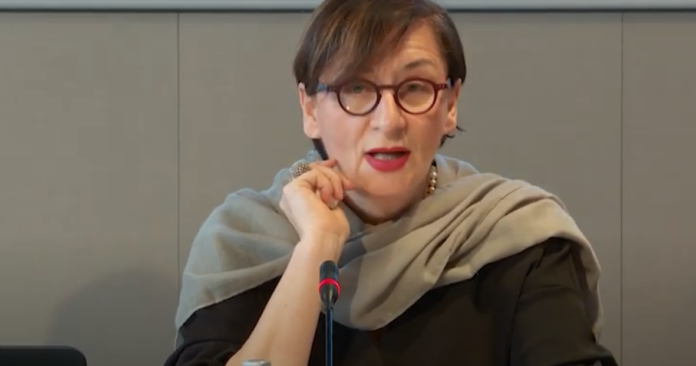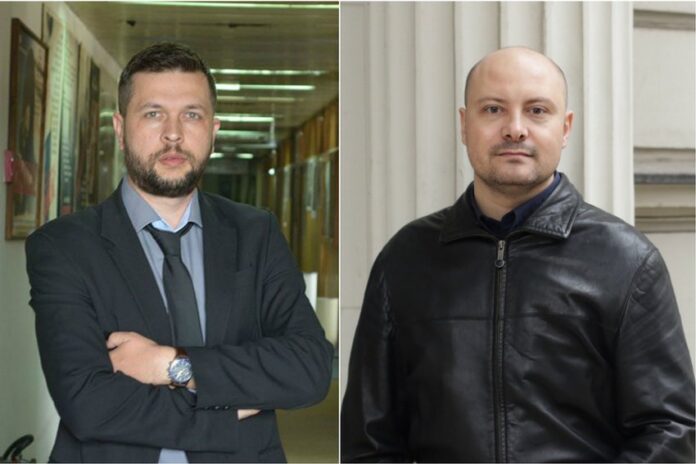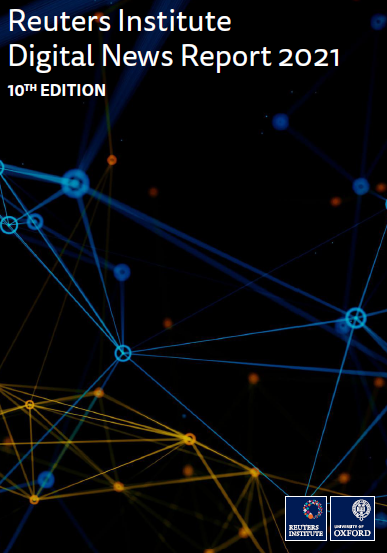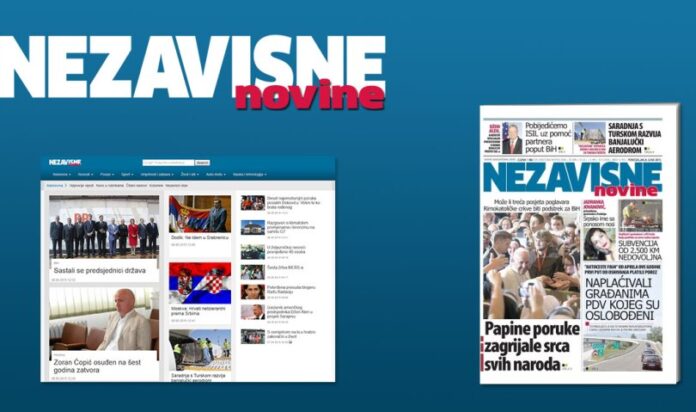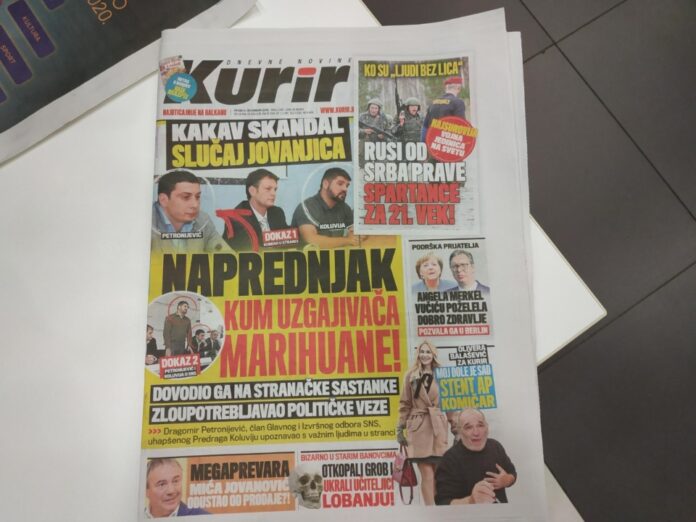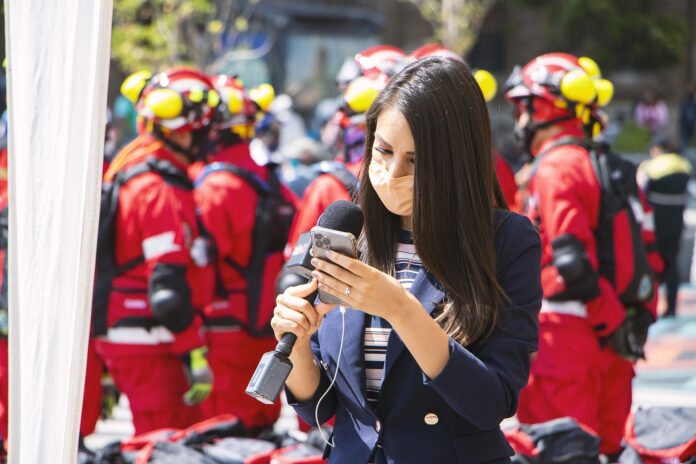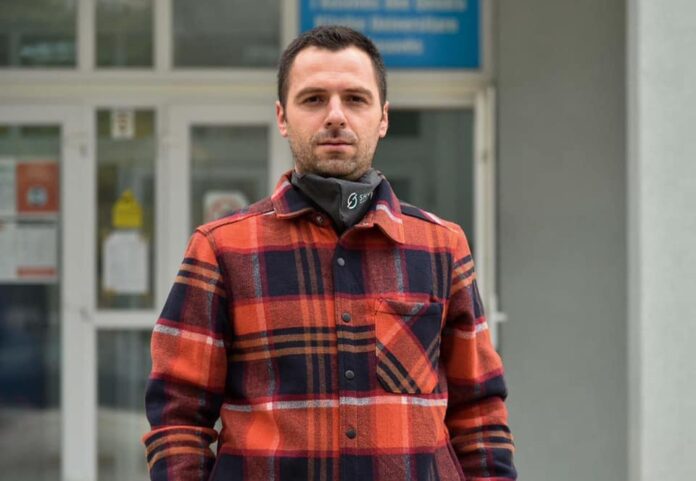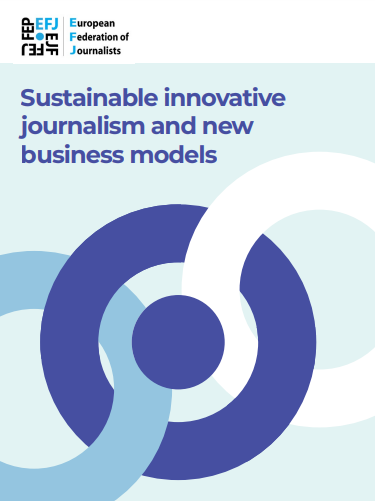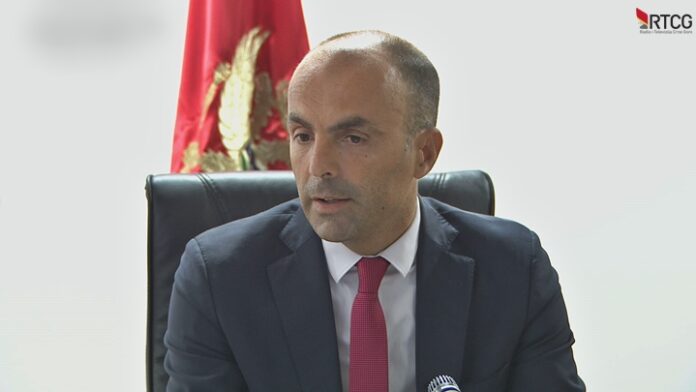This project is funded by
the European Union
SMCG condemns attack on Milka Tadic Mijovic
Court of BiH: Sarenac proved that Tvrtko Milovic was illegally appointed as editor of the BHT Documentary Program
SARAJEVO, August 16, 2021 – On July 9 this year, the Court of Bosnia and Herzegovina confirmed the first-instance verdict on annulment of the competition for the selection of the editor of the Documentary Contemporary Program of BHRT – BHT1, stating that Tvrtko Milovic was illegally appointed to the position of editor of the Documentary Program of this public service.
The appointment of Tvrtko Milovic to the position of editor of the Documentary-Contemporary Program BHT1 in March 2018 caused numerous controversies and public outrage. One of the candidates for this position was the award-winning film director Srdjan Sarenac, who sued BHRT after the appointment of Milovic, represented by lawyers of the Free Media Help Line (FMHL) which operates within the BH Journalists Association.
In May 2019, the Court of Bosnia and Herzegovina issued a decision challenging the appointment of Tvrtko Milović as the editor of the Documentary Program. It is evident from the verdict that the competition for the election of the editor was rigged and that BHRT consciously changed the conditions in relation to those prescribed by the Statute, so that Milović could be elected to that position.
Following this verdict, on 08.07.2019. BHRT re-elected the editor of the Documentary Program and reappointed Milovic to that position, claiming that the other candidates “did not respond to the interview” and that they had submitted a written notice that they would not attend the interview. However, Srdjan Sarenac again filed a lawsuit against BHRT, stating that no one from BHRT informed him about the re-election procedure, and that he did not even receive an invitation for an interview.
“The statement that the interview was conducted only with the candidate Tvrtko Milovic because the other candidates, including the prosecutor, did not respond to the interview and that they submitted a written notice that they would not attend it, remained unproven. Namely, during the proceedings the defendant (BHRT) did not prove that the plaintiff (Srdjan Sarenac) informed the defendant in writing that he was giving up the interview, so the plaintiff’s claim that he was not informed about the re-election of the editor of BHT1 because he never received an invitation for an interview is quite well founded. Therefore, apart from the fact that the procedure was not carried out in accordance with the provision of Article 60 of the Statute of the respondent, since the interview was conducted only with the proposed candidate, the question of the criteria for proposing the most successful candidate is quite reasonable” – it is stated in the final judgment of the Court of BiH, which was passed on July 9 this year.
In the verdict, the Court also ordered that BHRT is obliged to reimburse Srdjan Sarenac for the costs of the litigation in the amount of 3,369.60 BAM within 15 days of receiving the verdict.
In this case Sarenac was represented by lawyers of the law firm “Ademovic, Nozica and partners” from Sarajevo, who have been successfully cooperating with the BH Journalists Free Media Help Line for years in cases of illegal implementation of competition procedures in the media, labor disputes and defamation lawsuits against journalists and media outlets.
Digital News Report 2021: Pandemic increased trust in news
PODGORICA, August 16th, 2021 – Trust in the news has grown, on average, by six percentage points in the wake of the Coronavirus pandemic – with 44% of total saying they trust most news most of the time, shows the data from Digital News Report 2021.
Authors from the Reuters Institute and the University of Oxford conducted annual research based on data from six continents and 46 markets, with the aim to cast light on the key issues that face the industry at a time of deep uncertainty and rapid change.
„Television news has continued to perform strongly in some countries, but print newspapers have seen a further sharp decline almost everywhere as lockdowns impacted physical distribution, accelerating the shift towards mostly digital future.“
The study shows that use of social media for news remains strong, especially with younger people and those with lower levels of education. Messaging apps like WhatsApp and Telegram have become especially popular in the Global South, creating most concern when it comes to spreading misinformation about Coronavirus.
„Those who use social media are more likely to say they have been exposed to misinformation about Coronavirus than non-users. Facebook is seen as the main channel for spreading false information almost everywhere but messaging apps like WhatsApp are seen as a bigger problem in parts of the Global South such as Brazil and Indonesia“.
The data suggest that mainstream news brands and journalists attract most attention around news in both Facebook and Twitter but are eclipsed by influencers and alternative sources in networks like TikTok, Snapchat, and Instagram.
Research identifies significant increases in payment for online news in a small number of richer Western countries, but the overall percentage of people paying for online news remains low.
Across 20 countries where publishers have been pushing for more online payment, 17% have paid for any online news in the last year – up two percentage points. Norway continues to lead the way with 45% (+3) followed by Sweden (30%), the United States (21%), Finland (20%), the Netherlands (17%), and Switzerland (17%). There has been less progress in France (11%), Germany (9%), and the United Kingdom (8%).
„In most countries a large proportion of digital subscriptions go to just a few big national brands – reinforcing the winner takes most dynamics that we have reported in the past. But in the United States and Norway we do find that up to half of those paying are now taking out additional subscriptions – often to local or regional newspaper brands.“
The use of smartphone for news (73%) has grown at its fastest rate for many years, with dependence also growing through Coronavirus lockdowns. Growth in podcasts has slowed, in part due to the impact of restrictions on movement.
BH Journalists: The police must investigate and sanction hacker attacks on the media more effectively
Banja Luka / Sarajevo, 13 August 2021 – The Steering Committee of the BH Journalists Association publicly demands from the Cybercrime Unit of the Ministry of the Interior of Republika Srpska (MUP RS) an urgent investigation into hacker attacks on “Nezavisne novine” portal from Banja Luka (www.nezavisne.com). The DDoS hacker attacks began on Tuesday, August 10, and continue with undiminished intensity and with the obvious intention of preventing the editorial office of “Nezavisne novine” from publishing news and other content of importance to the public.
Given that the hacker attack, regardless of where it comes from, is a serious violation of journalists’ rights and stifling media freedom, the Steering Committee of BH Journalists considers it necessary for the RS MUP to conduct an efficient and thorough investigation of this case, and to identify and sanction perpetrators in accordance with the law.
The Steering Committee of BH Journalists assesses that hacker attacks are part of the deliberate efforts of individuals and groups trained to stifle media freedoms and prevent journalists in their daily work, as well as a direct attack on media whose editorial policy is disliked by political or other centers of power. In this context, BH Journalists draw attention to the fact that online media outlets in Bosnia and Herzegovina have been increasingly exposed to hacker attacks in recent years, which not only threaten freedom of expression and information, but also jeopardize the economic survival of these media and their employees. We remind that in February 2021, the online portals Žurnal and Nomad from Sarajevo and Buka from Banja Luka were exposed to strong, daily hacker attacks. It is not known whether and how those who stand behind these attacks are sanctioned.
The Steering Committee of BH Journalists also believes that, in addition to developing special security tools to combat DDoS attacks in media outlets, the most effective measure to prevent such attacks is to detect and punish those standing behind them. Police and cybercrime experts have the greatest responsibility, legal and technical preconditions in this fight, as well as a foothold in the Council of Europe Convention on Cybercrime ratified by the BiH Presidency in 2006, when it became part of the justice system and legislation in BiH.
BH Journalists give full support to their colleagues from “Nezavisne novine” and expect the RS Ministry of the Interior to publish the results of the investigation into this hacker attack, violation of media freedoms and safety of journalists and all employees of this media outlet.
The Steering Committee of BH Journalists Association
Serbia’s pro-regime tabloid sues four media, NGO, demands € 93,000 compensation
The tabloid sued ‘Raskrinkavanje’, a project of Crime and Corruption Reporting Network (KRIK), media freedom website Cenzolovka, independent Danas daily and the Center of Inter-cultural Documentation, an NGO from the northern city of Novi Sad.
The lawsuit was also launched against the state RTS TV.
Kurir said those media and the NGO published untrue, unconfirmed and offensive information about the tabloid in articles saying it often reported fake and manipulative news and systematically nourished hate speech as a part of its editorial policy.
Kurir said that “they (the sued media and the NGO) acted contrary to Serbia’s Journalists’ Code and Business Ethics Code, inflicting non-material damage to Kurir, bearing in mind that its business is tightly linked to its reputation.”
The tabloid added, “because of that, Kurir demands a total compensation of 93.5 thousand euros (11 million dinars) for damaging business reputation by unfair competition.”
This tabloid joined a series of the so-called SLAPPs, started by a private company, Millennium Team, against several local and independent media.
Later, the company reduced its compensation demands to a hundred euros per lawsuit but did not give them up.
Kurir has lost several lawsuits by media and individuals it falsely accused of different things.
Protection of women in journalism is imperative
PODGORICA, August 12th, 2021 – Female journalists, even though they usually carry most of the work on their backs, today face serious challenges and need special protection.
In Montenegro, female journalists are often targets of attacks, even during their regular working duties. Last time this was a case when journalist Jelena Jovanovic has been hit in the head during the protests in Niksic. Over the past year, we have witnessed numerous internet harassments and threats against female journalists, but also one arrest for allegedly causing riots and panic. The lawsuits were later dismissed, but journalist Andjela Djikanovic was remembered by almost cinematic scenes of her arrest.
The unsolved case of attempted murder of journalist Olivera Lakic still remains a burden to the country’s further integration into the EU.
Unfortunately, there are no special measures for protecting women in journalism adopted nor by authorities or by media outlets.
On the other hand, research shows that women are more often employed in the media sector than men.
According to International Federation of Journalists (IFJ) statistics, almost 65% of women media workers have experienced intimidation, threats or abuse in relation to their work. This is a threat to freedom of expression and media freedom.
Female journalists, besides being targets of harassment and attacks, face psychological pressure and are often job burnout victims.
This is the reason why international journalists’ organizations put their protection at the heart of their work.
„The violence and harassment faced by women journalists across the world. IFJ statistics demonstrate that at least 1 in every 2 journalists have suffered sexual harassment, psychological abuse, online trolling and other forms of human rights abuses“, show data of the IFJ.
They also emphasize the gender pay gap, which is a reality in every continent, and which not only affects women throughout their working lives but in retirement too.
„The increasingly precarious working conditions faced by women journalists, especially those forced to work without contracts, with a lack of social protections, pensions, paid holidays and other social benefits. The discrimination, including political, legal, cultural, racial and social factors faced by women journalists in their careers and communities, which impoverish them“, IFJ states.
That organization is committed to a fair gender portrayal in the news.
„Based on our commitment to ethical journalism, we fight against discrimination and help support positive quality journalism by publishing reporting guidelines and promoting best practices“.
AJK condemns the threat towards journalist Bujar Vitija
Bujar Vitija, a journalist with the online portal “gazetashneta.com”, has notified AJK that he has been threatened by a person, who is supposedly the father of the anesthesiologist Kemajl Gashi, for whom it has been reported by the above-mentioned portal to have been fined by the Health Inspectorate due to the fact that he has left his workplace during his custody shift.
“Apparently you have written something. You won’t be able to recognize yourself. We’ll be meeting real soon”, was the message to the journalist Vitija sent by this person. AJK considers this as a serious threat and one that endangers the safety of this journalist.
AJK calls upon Kosovo Police to handle the case with priority, after it has been reported to them by the journalist himself.
Sustainable innovations: Strong audience engagement and multi-platform journalism
PODGORICA, August 9th, 2021 – While independent and investigative journalism is under threat in the digital ecosystem, innovation and creativity are essential for the development of sustainable news media.
This is stated in this years’ research Sustainable innovative journalism and new business models by the European Federation of Journalists (EFJ).
„Successful media are the ones that offer strong engagement with the audience in order to get fresh input but also to win loyalty and keep the public’s trust (and financial support) alive. This engagement is particularly important for local and hyperlocal news, where literally all the media outlets call on citizens to contribute to the content, and sometimes to the editorial process. This also implies getting connected to the local economy, for ethical reasons, but also for financial reasons. In terms of financing, good practices include the creation of non-profit foundations and tax benefits for individuals who support independent media“, concludes the author.
The main actors of this innovation are journalists themselves. They may innovate while working for a media outlet or by creating their own new media. Journalists’ unions and associations also have a role to play in promoting innovative and sustainable journalism, in particular on two issues: lobbying for media policies guaranteeing a diverse and open media market, and training of their members for new opportunities in journalism.
According to the study, sustainable media are also the ones that do not rely heavily on a single source of funding – advertising being a particularly weak option in recent years.
„Successful innovative news media cherish their independence and are often reluctant to be supported by advertising, but not all European regions can “afford” to sustain media: low-income communities may not dedicate part of their resources to this aim.“
For this reason, a diverse mix of funding is the key to sustainability.
„Success is not only a question of money but also of profile. While non-profit media are developing, the legal framework of media has to be chosen carefully, and may sometimes even be by-passed by registering as a charity, for example. For governments to develop a specific legal status for non-profit media (either cooperative or associative status for independent media) is definitely a way to clarify and regulate this evolution in an efficient way“, it is stated in the study.
Testimonies also point out weaknesses, for example, the lack of sustainability of the support provided by foundations.
„These may be useful in times of crisis but lack strategies for the long term. This makes it all the more important that public support for media exists in many countries in Europe: a real reflection needs to be developed on this topic. Another weakness would be to rely on only one – or a few – technologies: there is no innovation for paper-only or online-only media without other means of communication such as social media or podcasts“.
The author points out that it is interesting to note how some of the examples have developed from 2019 to 2021.
„This is particularly the case for Media part in France and Republik in Switzerland. These two relatively young organisations became reference points for quality journalism in their respective countries, to the extent that Mediapart literally became a media institution, helping smaller initiatives to develop. Concerning journalists’ unions and associations: these have a role in the process of innovation, through promoting and encouraging initiatives. As representatives of media workers and defenders of their rights, journalists’ organisations have a responsibility to promote a pluralistic and diverse media ecosystem and to engage with the public authorities in their countries to do this. Taking the examples in this survey from Hungary, Poland, Slovakia and Slovenia together, we can see that there is a place for new, independent and sustainable journalism in Europe, even in a “hostile” political and economic environment“.
Boris Raonic new general director of RTCG
PODGORICA, 06.08.2021. – Council of Radio Television of Montenegro (RTCG) has elected Boris Raonic as the general director of the public service.
Raonic received seven votes, Nikola Markovic one vote, and one ballot was invalid.
Earlier today, Council interviewed Raonic, Markovic, and candidates Milutin Stijepovic and Srdjan Covic.
Candidates presented their vision of the current situation in RTCG and ideas for improving the program and management of this media.
Earlier, NGO Media Center requested that Labor Inspection check the legality of the election of the general director of RTCG. The Inspection then announced that they were not competent to inspect the received applications of the candidates.
President of the RTCG Council Veselin Drljevic announced, however, that the Labor Inspection came to the public service, and media reported that the inspection requested documentation.
Then, the Minister of Economic Development Jakov Milatovic tweeted that his department and the Labor Inspection did not “nor could they interfere in the process of electing the general director of RTCG”.
Milatovic announced the decision of the Ministry to accept the appeal of the NGO Media Center, ie that the inspection should perform supervision.
Photo: rtcg.me


